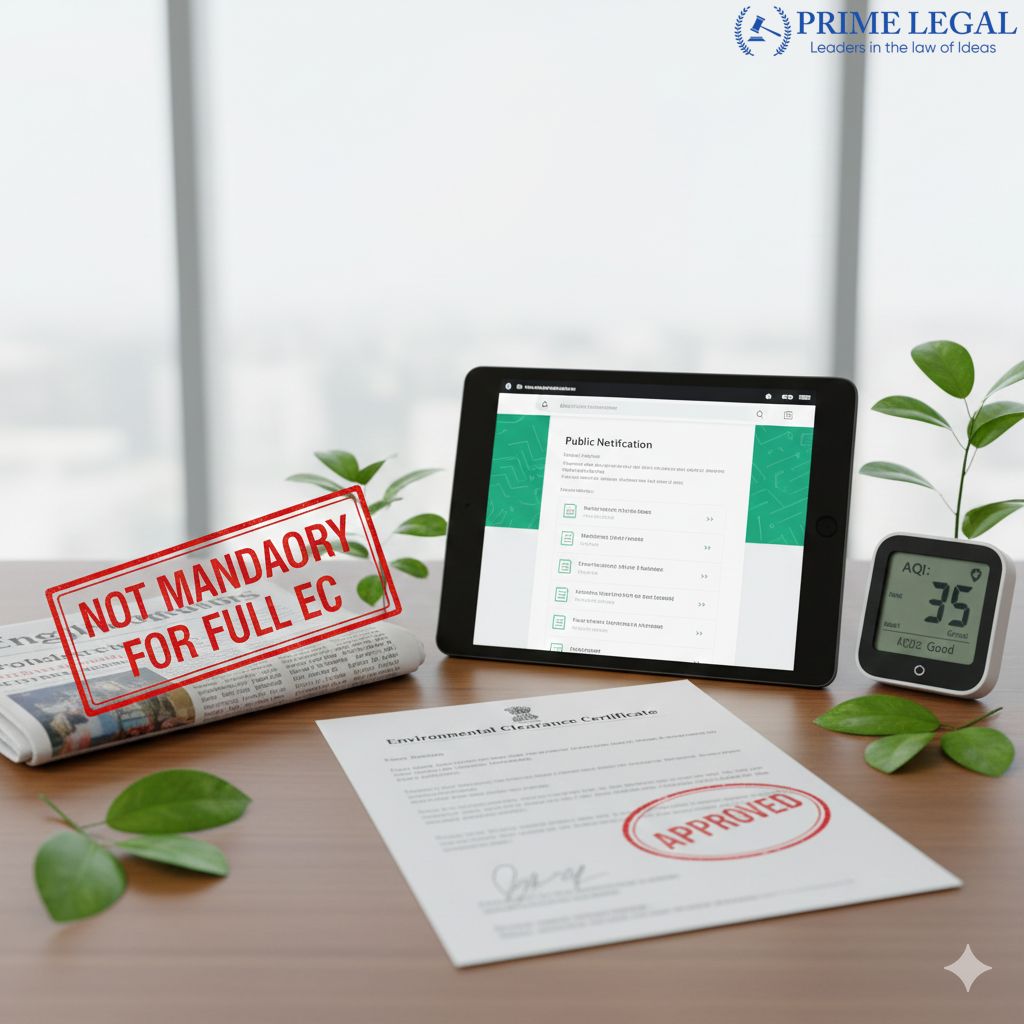INTRODUCTION
The Supreme Court recently stated that while a project proponent must publish notice of an Environmental Clearance (EC) it must not legally be required to publish the entire document in the newspaper. This ruling came in the case of Talli Gram Panchayat v. Union of India Civil Appeal No. 731 of 2023, clarified two important points of the environmental governance under the EIA notification, 2006. The Court further held that the limitation period of filling an EC begins from the earliest date of its public communication thereby, settling confusion regarding the starting point of limitation in environmental matters.
BACKGROUND
The dispute arose after the Ministry of Environmental Forest and Climate Change granted Environmental Clearance in January 2017, for a limestone mining project in Gujrat to Ultratech Cement, spanning over 193.33 hectares in Talli and Bamboor villages. Talli Gram Panchayat challenged this clearance before the National Green Tribunal (NGT) claiming that they only became aware of the EC through an RTI reply on February, 2017 and further argued that the project proponent failed to publish the complete EC in local newspaper as they believed was mandated under Clause 10 of EIA notification, 2006. The NGT dismissed the appeal on the ground of limitation because it was filed beyond the prescribed period. The Panchayat after that approached the Supreme Court, seeking relief on the basis that the EC was not properly publicized and that the limitation period should begin only from the date of actual knowledge.
KEY POINTS
The Supreme Court held that the EIA Notification, 2006 does not require entire Environmental Clearance to be published in a newspaper; only a notice containing the substance, conditions, and safeguards of the EC is sufficient.
The Court affirmed that publication of a summary meets the purpose of the public communication and avoids impracticability of producing lengthy technical documents in newspapers.
The Court as well took into consideration the V. Sundar Proprietor Chemical, India v. Union of India & Ors. Appeal No. 95 of 2014 (SZ), solidifying the principle that the date of first public communication, rather than the aggrieved party’s date of actual knowledge or full newspaper publication triggers the limitation period for an appeal.
The Court reasoned that communication through multiple channels is intended to ensure transparency and therefore limitation cannot depend on when each individual stakeholder gains actual knowledge.
Applying the principle the Court held that uploading the EC on the Ministry’s official website on 5th January 2017, constituted the first valid communication making the appeal filed on 19th April 2017 time barred.
RECENT DEVELOPMENTS
The judgement has been widely for streamlining procedural obligations for project proponents particularly by removing the burden of publishing the full Environmental Clearance text on newspapers and allowing communication of the same through summary notices and online availability, thereby reducing administrative cost and complexity. The Court noticed that this aligns with the previous interpretation of V. Sundar Proprietor Chemical, India v. Union of India & Ors. Appeal No. 95 of 2014 (SZ) solidifying the principle that the date of first public communication, rather than the aggrieved party’s date of actual knowledge or full newspaper publication triggers the limitation period for an appeal.
CONCLUSION
The Court’s ruling in the case offers pragmatic balance between procedural compliance and public access. By holding the ruling that a summary EC, will suffice to be published in the newspaper, the Supreme Court reduced administrative burden without compromising transparency, provided that the substance of the matter is communicated. Most importantly by starting the limitation clock from the moment of first public communication by any duty bearer the judgement ensures legal predictability while emphasizing the shared responsibility of multiple authorities to communicate environmental decisions.
“PRIME LEGAL is a full-service law firm that has won a National Award and has more than 20 years of experience in an array of sectors and practice areas. Prime legal falls into the category of best law firm, best lawyer, best family lawyer, best divorce lawyer, best divorce law firm, best criminal lawyer, best criminal law firm, best consumer lawyer, best civil lawyer.”
WRITTEN BY- SOUMITA CHAKRABORTY


